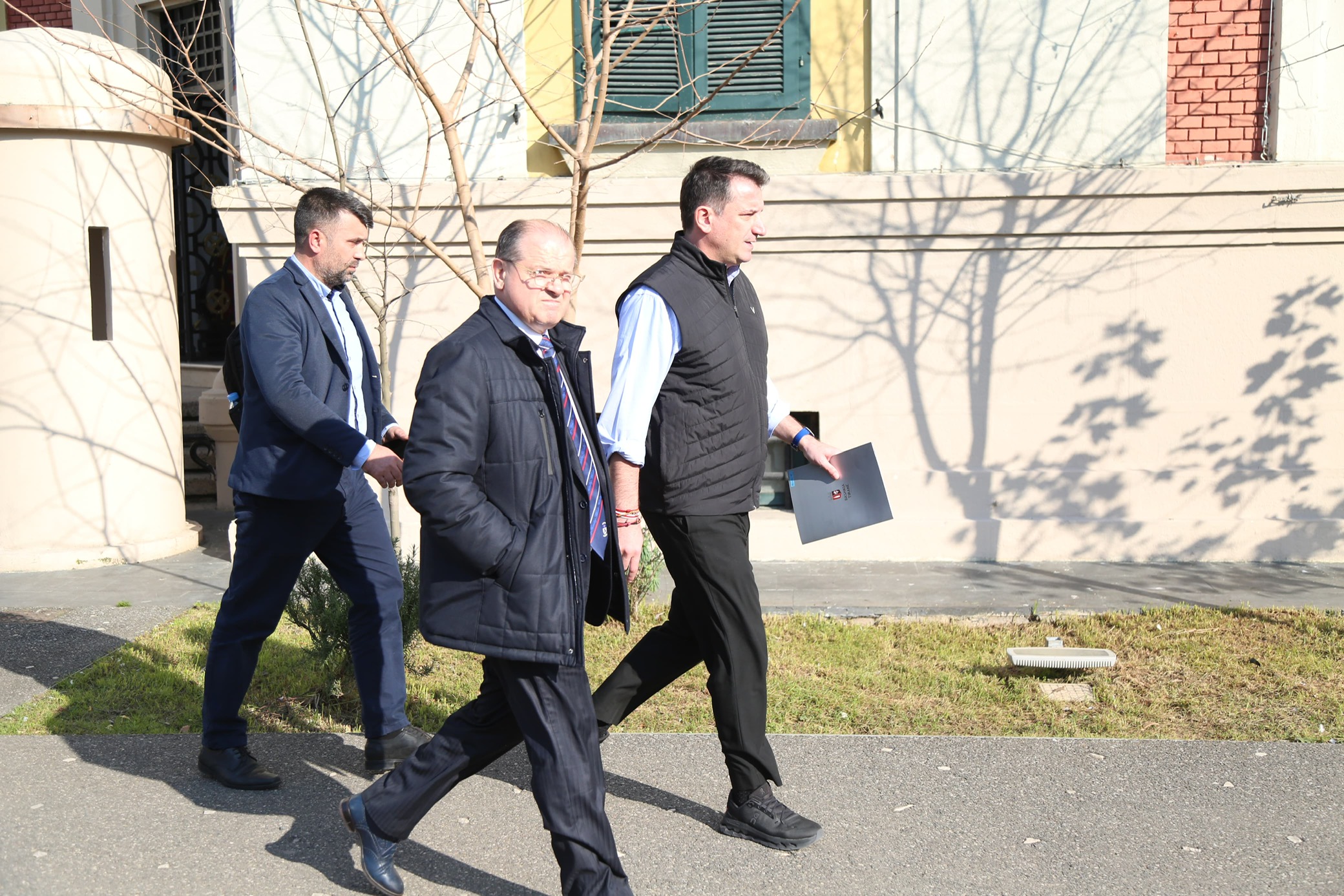Former justice ministers from different sides of the spectrum unite in harsh condemnation of SPAK over Veliaj case irregularities

The case against Tirana Mayor Erion Veliaj has brought together critics from opposite ends of Albania’s political spectrum. Former Justice Minister Ylli Manjani, a fierce opponent of both Veliaj and the Socialist government, and Fatmir Xhafaj, a former Minister of Justice and senior Socialist MP who spearheaded Albania’s justice reform, have found common ground in their criticisms of SPAK’s handling of the case. Their alignment underscores growing concerns that the prosecution is not only flawed but politically motivated.
Why is this important: Under normal circumstances Manjani and Xhafaj do not agree on much. That they now share the same concerns about SPAK’s investigation is raising fundamental questions about due process and selective prosecution. Their statements also highlight long-standing issues with SPAK’s reliance on anonymous denunciations and media leaks, which have repeatedly been used for political purposes.
Context: Veliaj was arrested on February 9 under corruption charges stemming from an anonymous tip-off. His pretrial detention has drawn sharp criticism, with legal experts arguing that SPAK has failed to present clear evidence directly implicating him in wrongdoing. The case is being prosecuted by Olsi Dado, a prosecutor that is alleged to have had personal disputes with Veliaj over construction permits. Critics argue that Dado’s involvement represents a clear conflict of interest, yet SPAK has dismissed concerns over his role in the case.
Adding to the controversy is the timing of the arrest, which came just three months before local elections in which Veliaj was expected to play a key role for the Socialist Party. The case has further fueled perceptions that SPAK is being used to disrupt the ruling party’s electoral strategy.
A case based on speculation and revenge: Ylli Manjani, who served as Justice Minister from the ranks of Ilir Meta’s party, a relentless critic of Socialist governance, expressed rare agreement with Fatmir Xhafaj’s assessment that SPAK’s investigation is fundamentally flawed.
“I rarely find myself in agreement with Fatmir Xhafaj. We have a vast divide in how we understand law and justice. But he stated a simple truth: ‘You cannot move from a property investigation to a criminal offense, it must be the other way around.’”
Manjani accused SPAK of basing its case on guesswork rather than expert analysis, arguing that forensic financial investigations must rely on objective assessments rather than prosecutorial assumptions. He also pointed out that SPAK has yet to produce concrete evidence of illegal activity.
“Every asset investigation we have seen so far has been based on expert assessments. Yet in Veliaj’s case, I have not seen any reference to experts—only the prosecutors’ speculations. This is dangerous.”
Justice must not be used for political warfare: Fatmir Xhafaj, architect of Albania’s justice reform, warned that SPAK’s credibility is at stake if it fails to uphold due process. He called on the judiciary to ensure that legal proceedings remain free from political influence.
“No one is above the law. But legal action must be based on facts, not on public perception or political calculations.”
Xhafaj further emphasized that anonymous denunciations should not serve as the basis for high-profile arrests, stating that this practice undermines the rule of law.
“Starting a legal process based on anonymity is a horror. The state must have the minimum integrity to face individuals directly, not hide behind anonymous complaints.”
What else: The use of an anonymous tip-off to start the investigation was a central point of criticism from both Manjani and Xhafaj. The one-page letter, which was published by Gazeta Tema, contained no clear evidence but rather a series of vague claims about Veliaj’s finances and alleged misuse of funds.
Critics argue that an anonymous denunciation should not form the legal foundation of such a high-profile prosecution, particularly when SPAK’s own mandate requires solid proof before pursuing a case.
Manjani called it “an alarming precedent”, stating:
“How can an institution as serious as SPAK initiate criminal proceedings based on an unsigned letter? This is absurd.”
Xhafaj echoed this concern, stating that “justice cannot be built on whispers and unsigned documents.”
On habeas corpus: Another major issue is that SPAK’s approach undermines the principle of habeas corpus, the fundamental legal right ensuring that an individual cannot be held without sufficient evidence.
Manjani stressed that Veliaj’s pretrial detention was not justified, since the prosecution has failed to demonstrate a clear and immediate risk that would warrant such a measure.
“Habeas corpus is the foundation of justice. You cannot imprison someone just because you are still looking for proof. That is the logic of an authoritarian state, not a democracy.”
Xhafaj similarly criticized SPAK for “treating detention as punishment rather than as a legal safeguard.”


